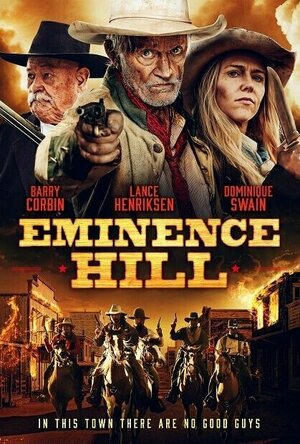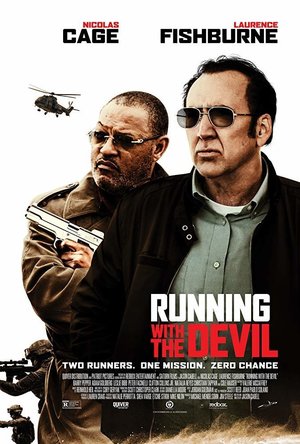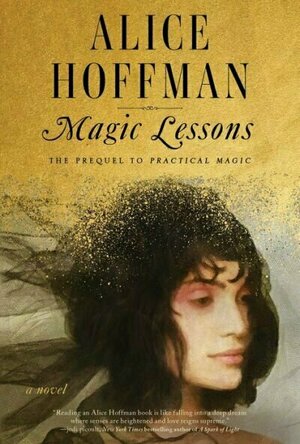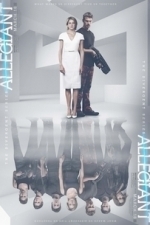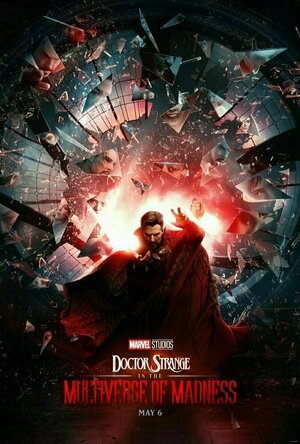Search
Search results
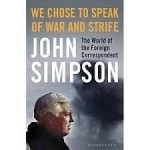
We Chose to Speak of War and Strife: The World of the Foreign Correspondent
Book
In corners of the globe where fault-lines seethe into bloodshed and civil war, foreign...
Darren (1599 KP) rated Eminence Hill (2019) in Movies
Oct 31, 2019
Characters – Noah is the leader of a religious group, he takes it into his own hands to play judge jury and executioner in his community and doesn’t take to lightly towards the Tullis Gang coming into his territory. Royce Tullis is the leader of the gang with his love Gretchen, they have been targeting jurors who sentenced his brother to death and now finishing their killing spree, they look to escape, only they both find themselves questioning their actions while being held captive by Noah. Quincy is the lawman that is trying to track down the Tullis Gang, he is uses his gun skills when needed and can read a person through any conversation.
Performances – Barry Corbin does bring his character to life in this film to change the tone of what we had seen. Clint James and Dominique Swain are both strong as the outlaw figures, not being full blown crazy evil like members of their gang. Owen Conway is the star of the show with his calm calculated character.
Story – The story here follows an US Marshall tracking down a group of outlaws, who have fallen into the hands of a religion community that want to make them pay for their sins. We do follow three different sides of the stories unfold, we get the outlaws planning their escape, they have US Marshall planning his way of capturing them and the religious group wanting to stay out of world’s view. We do get to see each side develop and with secrets behind certain ones being held back long enough. We do get to see just how every does feel like a chapter in a Red Dead Redemption chapter, where the outlaws meet a random group which will be the problem they need to overcome, while avoiding a fate coming for them.
Western – The western side of the film is well designed, showing us the outlaws, bounty hunter and strange groups that could have been built up not knowing too much more outside their comfort zones.
Settings – The settings are well crafted sets for the town, while the open plains represent the world in the era the film would be set in.
Scene of the Movie – Noah’s dinner offer.
That Moment That Annoyed Me – We could have spent more time on the Royce hunting down jurors.
Final Thoughts – This is a western that plays everything out well, without being as edgy as the subject matter wants to be, the religious group could have gone a lot darker, with plenty of signs of this, while the Marshall is the most interesting characters of the whole cast.
Overall: Western by the book.
Performances – Barry Corbin does bring his character to life in this film to change the tone of what we had seen. Clint James and Dominique Swain are both strong as the outlaw figures, not being full blown crazy evil like members of their gang. Owen Conway is the star of the show with his calm calculated character.
Story – The story here follows an US Marshall tracking down a group of outlaws, who have fallen into the hands of a religion community that want to make them pay for their sins. We do follow three different sides of the stories unfold, we get the outlaws planning their escape, they have US Marshall planning his way of capturing them and the religious group wanting to stay out of world’s view. We do get to see each side develop and with secrets behind certain ones being held back long enough. We do get to see just how every does feel like a chapter in a Red Dead Redemption chapter, where the outlaws meet a random group which will be the problem they need to overcome, while avoiding a fate coming for them.
Western – The western side of the film is well designed, showing us the outlaws, bounty hunter and strange groups that could have been built up not knowing too much more outside their comfort zones.
Settings – The settings are well crafted sets for the town, while the open plains represent the world in the era the film would be set in.
Scene of the Movie – Noah’s dinner offer.
That Moment That Annoyed Me – We could have spent more time on the Royce hunting down jurors.
Final Thoughts – This is a western that plays everything out well, without being as edgy as the subject matter wants to be, the religious group could have gone a lot darker, with plenty of signs of this, while the Marshall is the most interesting characters of the whole cast.
Overall: Western by the book.
Darren (1599 KP) rated Running with the Devil (2019) in Movies
Oct 31, 2019
Characters – Noah is the leader of a religious group, he takes it into his own hands to play judge jury and executioner in his community and doesn’t take to lightly towards the Tullis Gang coming into his territory. Royce Tullis is the leader of the gang with his love Gretchen, they have been targeting jurors who sentenced his brother to death and now finishing their killing spree, they look to escape, only they both find themselves questioning their actions while being held captive by Noah. Quincy is the lawman that is trying to track down the Tullis Gang, he is uses his gun skills when needed and can read a person through any conversation.
Performances – Barry Corbin does bring his character to life in this film to change the tone of what we had seen. Clint James and Dominique Swain are both strong as the outlaw figures, not being full blown crazy evil like members of their gang. Owen Conway is the star of the show with his calm calculated character.
Story – The story here follows an US Marshall tracking down a group of outlaws, who have fallen into the hands of a religion community that want to make them pay for their sins. We do follow three different sides of the stories unfold, we get the outlaws planning their escape, they have US Marshall planning his way of capturing them and the religious group wanting to stay out of world’s view. We do get to see each side develop and with secrets behind certain ones being held back long enough. We do get to see just how every does feel like a chapter in a Red Dead Redemption chapter, where the outlaws meet a random group which will be the problem they need to overcome, while avoiding a fate coming for them.
Western – The western side of the film is well designed, showing us the outlaws, bounty hunter and strange groups that could have been built up not knowing too much more outside their comfort zones.
Settings – The settings are well crafted sets for the town, while the open plains represent the world in the era the film would be set in.
Scene of the Movie – Noah’s dinner offer.
That Moment That Annoyed Me – We could have spent more time on the Royce hunting down jurors.
Final Thoughts – This is a western that plays everything out well, without being as edgy as the subject matter wants to be, the religious group could have gone a lot darker, with plenty of signs of this, while the Marshall is the most interesting characters of the whole cast.
Overall: Western by the book.
Performances – Barry Corbin does bring his character to life in this film to change the tone of what we had seen. Clint James and Dominique Swain are both strong as the outlaw figures, not being full blown crazy evil like members of their gang. Owen Conway is the star of the show with his calm calculated character.
Story – The story here follows an US Marshall tracking down a group of outlaws, who have fallen into the hands of a religion community that want to make them pay for their sins. We do follow three different sides of the stories unfold, we get the outlaws planning their escape, they have US Marshall planning his way of capturing them and the religious group wanting to stay out of world’s view. We do get to see each side develop and with secrets behind certain ones being held back long enough. We do get to see just how every does feel like a chapter in a Red Dead Redemption chapter, where the outlaws meet a random group which will be the problem they need to overcome, while avoiding a fate coming for them.
Western – The western side of the film is well designed, showing us the outlaws, bounty hunter and strange groups that could have been built up not knowing too much more outside their comfort zones.
Settings – The settings are well crafted sets for the town, while the open plains represent the world in the era the film would be set in.
Scene of the Movie – Noah’s dinner offer.
That Moment That Annoyed Me – We could have spent more time on the Royce hunting down jurors.
Final Thoughts – This is a western that plays everything out well, without being as edgy as the subject matter wants to be, the religious group could have gone a lot darker, with plenty of signs of this, while the Marshall is the most interesting characters of the whole cast.
Overall: Western by the book.
Lyndsey Gollogly (2893 KP) rated Magic Lessons: The Prequel to Practical Magic in Books
Feb 13, 2022
27 of 230
Book
Magic Lessons (practical Magic book 1 )
By Alice Hoffman
In this “ bewitching” (The New York Times Book Review) novel that traces a centuries-old curse to its source, beloved author Alice Hoffman unveils the story of Maria Owens, accused of witchcraft in Salem, and matriarch of a line of the amazing Owens women and men featured in Practical Magic and The Rules of Magic.
Where does the story of the Owens bloodline begin? With Maria Owens, in the 1600s, when she’s abandoned in a snowy field in rural England as a baby. Under the care of Hannah Owens, Maria learns about the “Nameless Arts.” Hannah recognizes that Maria has a gift and she teaches the girl all she knows. It is here that she learns her first important lesson: Always love someone who will love you back.
When Maria is abandoned by the man who has declared his love for her, she follows him to Salem, Massachusetts. Here she invokes the curse that will haunt her family. And it’s here that she learns the rules of magic and the lesson that she will carry with her for the rest of her life. Love is the only thing that matters.
Magic Lessons is a “heartbreaking and heart-healing” (BookPage) celebration of life and love and a showcase of Alice Hoffman’s masterful storytelling.
It was ok. I struggled to keep my focus in some parts as it didn’t seem necessary but I ploughed through. Hopefully I’ll enjoy Practical magic more as I loved the film.
Book
Magic Lessons (practical Magic book 1 )
By Alice Hoffman
In this “ bewitching” (The New York Times Book Review) novel that traces a centuries-old curse to its source, beloved author Alice Hoffman unveils the story of Maria Owens, accused of witchcraft in Salem, and matriarch of a line of the amazing Owens women and men featured in Practical Magic and The Rules of Magic.
Where does the story of the Owens bloodline begin? With Maria Owens, in the 1600s, when she’s abandoned in a snowy field in rural England as a baby. Under the care of Hannah Owens, Maria learns about the “Nameless Arts.” Hannah recognizes that Maria has a gift and she teaches the girl all she knows. It is here that she learns her first important lesson: Always love someone who will love you back.
When Maria is abandoned by the man who has declared his love for her, she follows him to Salem, Massachusetts. Here she invokes the curse that will haunt her family. And it’s here that she learns the rules of magic and the lesson that she will carry with her for the rest of her life. Love is the only thing that matters.
Magic Lessons is a “heartbreaking and heart-healing” (BookPage) celebration of life and love and a showcase of Alice Hoffman’s masterful storytelling.
It was ok. I struggled to keep my focus in some parts as it didn’t seem necessary but I ploughed through. Hopefully I’ll enjoy Practical magic more as I loved the film.
Movie Metropolis (309 KP) rated Allegiant (2016) in Movies
Jun 11, 2019
A+ for effort
I think it’s probably fair to say that the Young Adult genre has become oversaturated due to the phenomenal success of The Hunger Games. Since coming to a slightly underwhelming conclusion last year, many new franchises have its crown firmly in their sights.
The Maze Runner was a muddled first outing with the second, Scorch Trials faring much better and the same can be said for the Divergent series. The first film was at times, an incomprehensible mess, while its follow-up, Insurgent was a thrilling if CGI-heavy and overlong affair.
Allegiant marks the first of two films ending the moderately successful series, with Ascendant being released in June next year. But does this split conclusion harm it as much as it did for Mockingjay?
Allegiant picks up immediately after the end of its predecessor with Tris Prior (Shailene Woodley), her lover Four (Theo James) and a group of friends leaving their once safe-haven of a post-apocalyptic Chicago in order to find a world beyond the wall, populated by others once thought forgotten. What ensues will change their lives forever.
The cast is on form in this instalment with Woodley growing into the role perfectly. It’s true that she’s no Jennifer Lawrence, and many would see her as a budget Katniss Everdeen, but she plays the character with a confidence only matched by her rival in the genre. Theo James gets a much larger role here too, and this is welcome, given his pivotal part in the novels.
Elsewhere, Naomi Watts does her best Julianne Moore impression and clearly watched the latter’s performance in Mockingjay to prepare for an incredibly similar role. Jeff Daniels is a nice addition as the Bureau of Genetic Welfare’s leader, David, though again, his acting prowess feels a little wasted.
Robert Schwentke directs the film with a unique colour palate and visual flair. Scenes “beyond the wall” are stunning and glisten with a red lick of paint, a welcome change from the staid, grey and blue many directors continue to use in blockbusters. It’s very Total Recall-esque in these sequences and better for it.
Unfortunately, once the plucky group of teens leave the Martian-like “Fringe” behind, the CGI kicks up a gear. This is where things start to unravel somewhat and Schwentke throws effect upon effect at the screen until there is hardly any realism left. On the whole, they’re pretty decent, but there are a few lapses that stop the film dead in its tracks, especially towards the cliff-hanger conclusion.
It’s also far too long. Much like Mockingjay, splitting the final book was an exercise in cash-grabbing rather than giving fans of the novels what they want. At over two hours in length, Allegiant drags in places and means the final film, as a whole, will be around four hours.
Nevertheless, there is much to enjoy here. The story for newcomers is incomprehensible and some of the dialogue is downright laughable, but for those of us continuing the saga, it’s an epic adventure with some cracking visuals, good acting and an intriguing plot – despite a few convoluted moments.
Overall, Allegiant is a film hampered by its timing. The similarities to The Hunger Games are obvious throughout, from exactly the same dialogue in certain scenes, to similar sets and similar casting decisions. But, if you can forget all that, it’s a fun, if overlong ride
https://moviemetropolis.net/2016/03/13/a-for-effort-divergent-allegiant-review/
The Maze Runner was a muddled first outing with the second, Scorch Trials faring much better and the same can be said for the Divergent series. The first film was at times, an incomprehensible mess, while its follow-up, Insurgent was a thrilling if CGI-heavy and overlong affair.
Allegiant marks the first of two films ending the moderately successful series, with Ascendant being released in June next year. But does this split conclusion harm it as much as it did for Mockingjay?
Allegiant picks up immediately after the end of its predecessor with Tris Prior (Shailene Woodley), her lover Four (Theo James) and a group of friends leaving their once safe-haven of a post-apocalyptic Chicago in order to find a world beyond the wall, populated by others once thought forgotten. What ensues will change their lives forever.
The cast is on form in this instalment with Woodley growing into the role perfectly. It’s true that she’s no Jennifer Lawrence, and many would see her as a budget Katniss Everdeen, but she plays the character with a confidence only matched by her rival in the genre. Theo James gets a much larger role here too, and this is welcome, given his pivotal part in the novels.
Elsewhere, Naomi Watts does her best Julianne Moore impression and clearly watched the latter’s performance in Mockingjay to prepare for an incredibly similar role. Jeff Daniels is a nice addition as the Bureau of Genetic Welfare’s leader, David, though again, his acting prowess feels a little wasted.
Robert Schwentke directs the film with a unique colour palate and visual flair. Scenes “beyond the wall” are stunning and glisten with a red lick of paint, a welcome change from the staid, grey and blue many directors continue to use in blockbusters. It’s very Total Recall-esque in these sequences and better for it.
Unfortunately, once the plucky group of teens leave the Martian-like “Fringe” behind, the CGI kicks up a gear. This is where things start to unravel somewhat and Schwentke throws effect upon effect at the screen until there is hardly any realism left. On the whole, they’re pretty decent, but there are a few lapses that stop the film dead in its tracks, especially towards the cliff-hanger conclusion.
It’s also far too long. Much like Mockingjay, splitting the final book was an exercise in cash-grabbing rather than giving fans of the novels what they want. At over two hours in length, Allegiant drags in places and means the final film, as a whole, will be around four hours.
Nevertheless, there is much to enjoy here. The story for newcomers is incomprehensible and some of the dialogue is downright laughable, but for those of us continuing the saga, it’s an epic adventure with some cracking visuals, good acting and an intriguing plot – despite a few convoluted moments.
Overall, Allegiant is a film hampered by its timing. The similarities to The Hunger Games are obvious throughout, from exactly the same dialogue in certain scenes, to similar sets and similar casting decisions. But, if you can forget all that, it’s a fun, if overlong ride
https://moviemetropolis.net/2016/03/13/a-for-effort-divergent-allegiant-review/
LeftSideCut (3776 KP) rated Doctor Strange in the Multiverse of Madness (2022) in Movies
May 11, 2022
I've taken a few days since seeing Multiverse of Madness to try and digest it as a whole, and decide how I felt about it. It's certainly wild, and leaves a hefty impression. My initial reservations stem from a couple of elements. Firstly, due to the nature of the multiverse, there are some big set pieces and character moments that feel a bit inconsequential. I hope that future projects might reveist these moments and the subsequent fallout from them, but I've got a sneaky feeling that might not happen. Secondly, there's a massive plot point that drives the entire movie that feels a little unearned, even if the execution packs a hell of a punch.
Overall though, I feel that these are minor detriments to what is a spectacular, and comic-book-as-fuck MCU entry, an entry that carries a unique signature, thanks in no small part to its director. It's no secret that I'm a big ol' Sam Raimi fan, and the entirety of MoM feels like a film straight from his mind. Sure, it has the standard Marvel Studios template, but his style shines through with little effort. There are definitely some moments that feel like a gateway horror flick, and even a bit of splatter that you might not expect from an MCU movie. There's even a few Evil Dead references chucked in for good measure.
It terms of wider connections, there's a lot goinh on here. The narrative does a lot to establish Dr Strange as a major player going forward, and introduces a great deep cut from the comics in America Chavez, another character that would fit right in with a Young Avenger film that is surely not too far off. It's also the first theater release to really feel impacted by the Disney+ shows, essentially acting as not just a sequel to Doctor Strange and No Way Home, but to WandaVision as well. On that note, Elizabeth Olsen all but steals the show here, and it's quite glorious. Elsewhere, the multiverse ensures that there are some crazy set pieces, and some fun cameos that will surely have fans talking and speculating for quite some time.
If nothing else, MoM is an incredibly fun Sam Raimi film, and a solid entry into the wider MCU, and I'm happy with that result.
Overall though, I feel that these are minor detriments to what is a spectacular, and comic-book-as-fuck MCU entry, an entry that carries a unique signature, thanks in no small part to its director. It's no secret that I'm a big ol' Sam Raimi fan, and the entirety of MoM feels like a film straight from his mind. Sure, it has the standard Marvel Studios template, but his style shines through with little effort. There are definitely some moments that feel like a gateway horror flick, and even a bit of splatter that you might not expect from an MCU movie. There's even a few Evil Dead references chucked in for good measure.
It terms of wider connections, there's a lot goinh on here. The narrative does a lot to establish Dr Strange as a major player going forward, and introduces a great deep cut from the comics in America Chavez, another character that would fit right in with a Young Avenger film that is surely not too far off. It's also the first theater release to really feel impacted by the Disney+ shows, essentially acting as not just a sequel to Doctor Strange and No Way Home, but to WandaVision as well. On that note, Elizabeth Olsen all but steals the show here, and it's quite glorious. Elsewhere, the multiverse ensures that there are some crazy set pieces, and some fun cameos that will surely have fans talking and speculating for quite some time.
If nothing else, MoM is an incredibly fun Sam Raimi film, and a solid entry into the wider MCU, and I'm happy with that result.
David McK (3695 KP) rated Fool Moon (The Dresden Files, #2) in Books
Jan 28, 2019
<updated review in 2019>
I read the graphic novel version when I accidentally purchased the Dresden Files Omnibus from Comixology, thinking it contained new stories (it doesn't: it contains 'Storm Front', this ('Fool Moon') and the short story 'A Restoration of Faith'). While it's been a few years since I last read the actual novel, from what I remember, the graphic novel sticks pretty close to the original source material. I still have trouble as seeing Harry Dresden as any other than Nicolas Cage from the film 'The Sorceror's Apprentice', though ...
<original review>
Second entry in Jim Butcher's Dresden files series, building upon and expanding the world first introduced in "Storm Front", and in which Harry Dresden - Chaicago's only professional wizard in the phone book - ends up involved in a case to do with Werewolves (of which there are more types than your classical bi-morph).
I read the graphic novel version when I accidentally purchased the Dresden Files Omnibus from Comixology, thinking it contained new stories (it doesn't: it contains 'Storm Front', this ('Fool Moon') and the short story 'A Restoration of Faith'). While it's been a few years since I last read the actual novel, from what I remember, the graphic novel sticks pretty close to the original source material. I still have trouble as seeing Harry Dresden as any other than Nicolas Cage from the film 'The Sorceror's Apprentice', though ...
<original review>
Second entry in Jim Butcher's Dresden files series, building upon and expanding the world first introduced in "Storm Front", and in which Harry Dresden - Chaicago's only professional wizard in the phone book - ends up involved in a case to do with Werewolves (of which there are more types than your classical bi-morph).
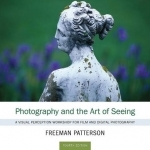
Photography and the Art of Seeing: A Visual Perception Workshop
Book
The second book in Freeman Patterson's internationally acclaimed series of instructional books on...
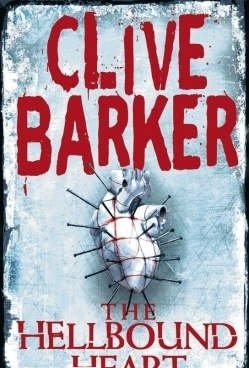
The Hellbound Heart
Book
Clive Barker is widely acknowledged as the master of nerve-shattering horror. The Hellbound Heart is...
hellraiser
TF
Tweenhood: Femininity and Celebrity in Tween Popular Culture
Book
A powerful female, preadolescent, consumer demographic has emerged in tandem with girls becoming...
